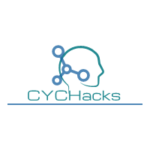Have you been online recently and seen the latest trends for treating depression?
Every year, there seems to be a new miracle option that promises results! This year, it seems that the focus for treating mental health has once again moved back to physical exercise. While that is not bad advice to help alleviate mental health issues if you have severe or treatment-resistant depression, chances are your energy levels will be shot. The end result is that you may be too tired or depressed to exercise, leading to worsening depression symptoms in the long term.
Another potential treatment option for treatment-resistant depression that has gained some attention in the last few years is ketamine therapy. This usually involves a drip of ketamine into the arm via an IV, allowing it direct access to the bloodstream. Ketamine therapy cannot be performed at home and needs to be done in a clinic with a medical team to ensure the best results.
So, why is this option becoming so popular? The answer to that question and many more are answered below.
Table of Contents
It Works Quickly
When you go to a clinic to undertake ketamine infusion therapy, the team will assess the concentration of ketamine that is needed for you to get the most benefit. Once the needle is in your arm, you may start to experience a reduction in the symptoms of depression in as little as 10 minutes. This is very much the experience of people who have used a reputable website, like daydreammd.com, to book their treatments. Not only that, but the reduction of depression-like symptoms can last up to 6 weeks after the infusion therapy has ended, so it is long-lasting!
It Has Few Side Effects
OK, so while ketamine therapy is not without its side effects, they are minimal, especially when compared to standard antidepressant medications.
When the infusion is taking place, you will likely feel disconnected from yourself; this is known as dissociation and, for many, is a pleasant side effect. Once the treatment is complete, you may feel dizzy, lightheaded, nauseated, and even tingling in your extremities. This will fade in a few hours, and your energy levels will return to normal.
It Can Be Used With Other Medications
Many people who have depression are taking some kind of antidepressant, usually a selective serotonin reuptake inhibitor. The good news is that you don’t have to come off of your prescribed medication to undertake ketamine therapy so that you won’t experience any unpleasant side effects. If you are taking any medication that slows your heart rate like beta blockers, you may not be suitable for ketamine treatment, as that is one of the key side effects of the therapy itself.
It Can Be Used Alongside Therapy
The majority of clinics that use ketamine treatments also offer ketamine-assisted psychotherapy. This is done with the help of a trained psychotherapist, who uses the time that you have the ketamine infusions to talk about potentially distressing subjects, which may be hard to talk about or process without the help of the ketamine. This will help you to process difficult emotions and may go a long way towards alleviating the symptoms of depression that are distressing, such as low or flat mood, bouts of crying, and even insomnia or anxiety.
It Treats Comorbid Issues
Very few people experience depression in isolation.
Many people who have depression will also have from anxiety, suicidal ideation, and even chronic pain. Indeed, research has found that many people who are diagnosed with fibromyalgia or chronic fatigue syndrome also have a diagnosis of depression.
Anyway, treatment with ketamine offers a multi-faceted approach to most mental health issues. It can be used to treat not only depression, but it has also been found to be beneficial for treating anxiety, post-traumatic stress disorder, and, of course, associated discomfort in the body. This helps to offer people who undertake ketamine treatment a more thorough relief period from depression and all of the associated symptoms, meaning it is more effective than traditional antidepressant medication or therapy alone.
Before undertaking ketamine infusion treatment, you will need to undergo an assessment, which will involve the team who is going to offer you the therapy if you have a history of psychosis or hallucinations. This will help to assess your suitability as, while psychosis can be a comorbid condition with severe depression, ketamine can worsen it and may, in some cases, heighten paranoia. So, be honest with the team who are going to be offering you the treatment to prevent long-term issues.
Alex is fascinated with “understanding” people. It’s actually what drives everything he does. He believes in a thoughtful exploration of how you shape your thoughts, experience of the world.

